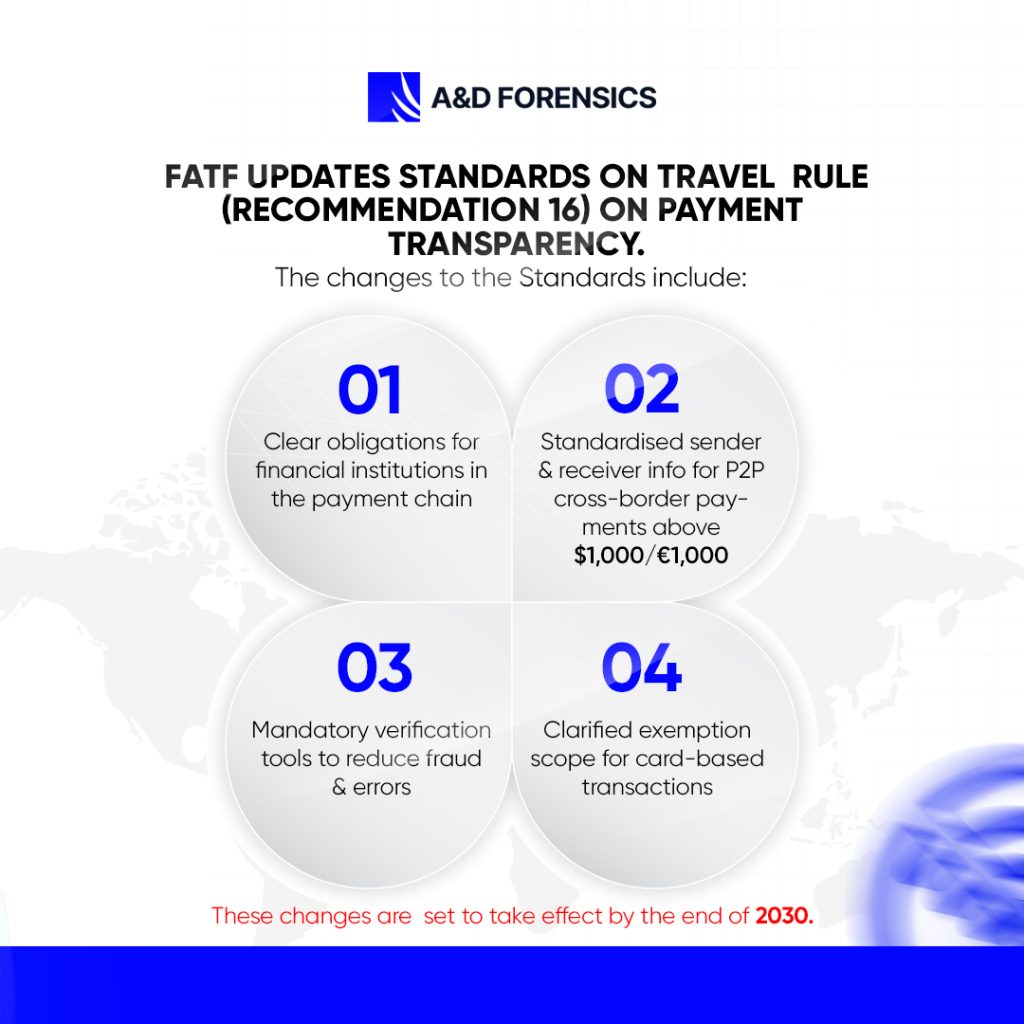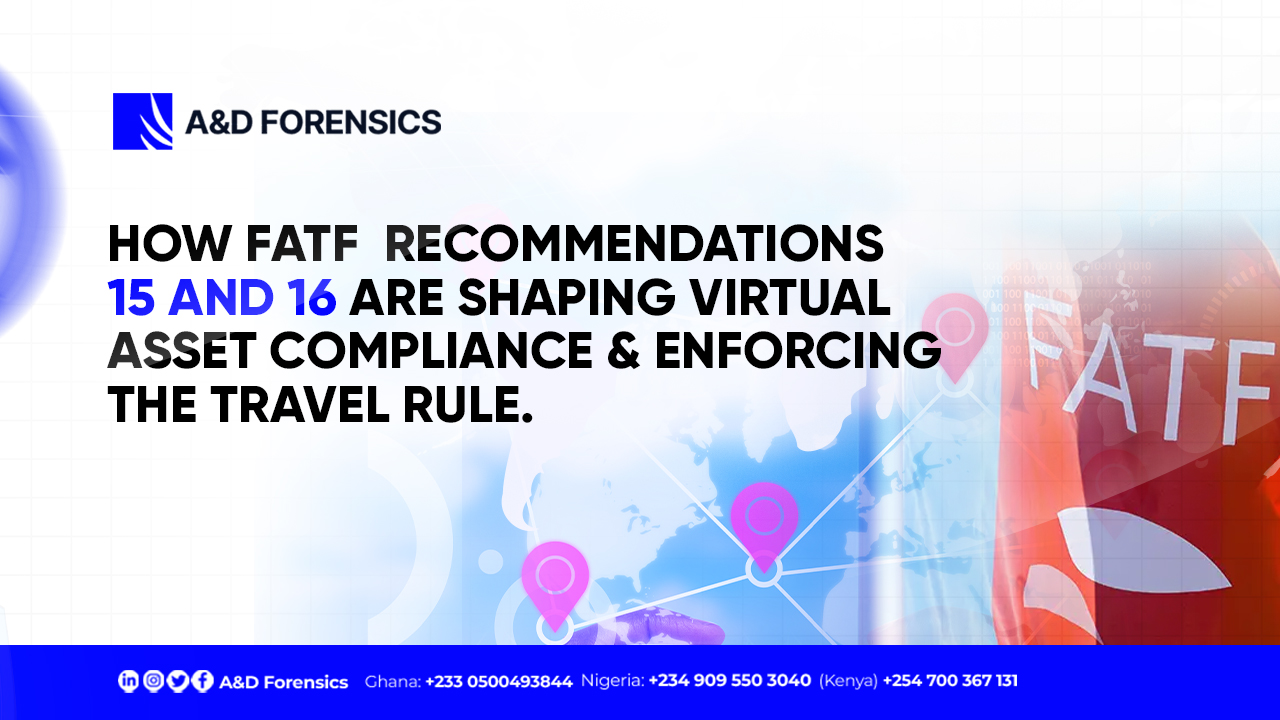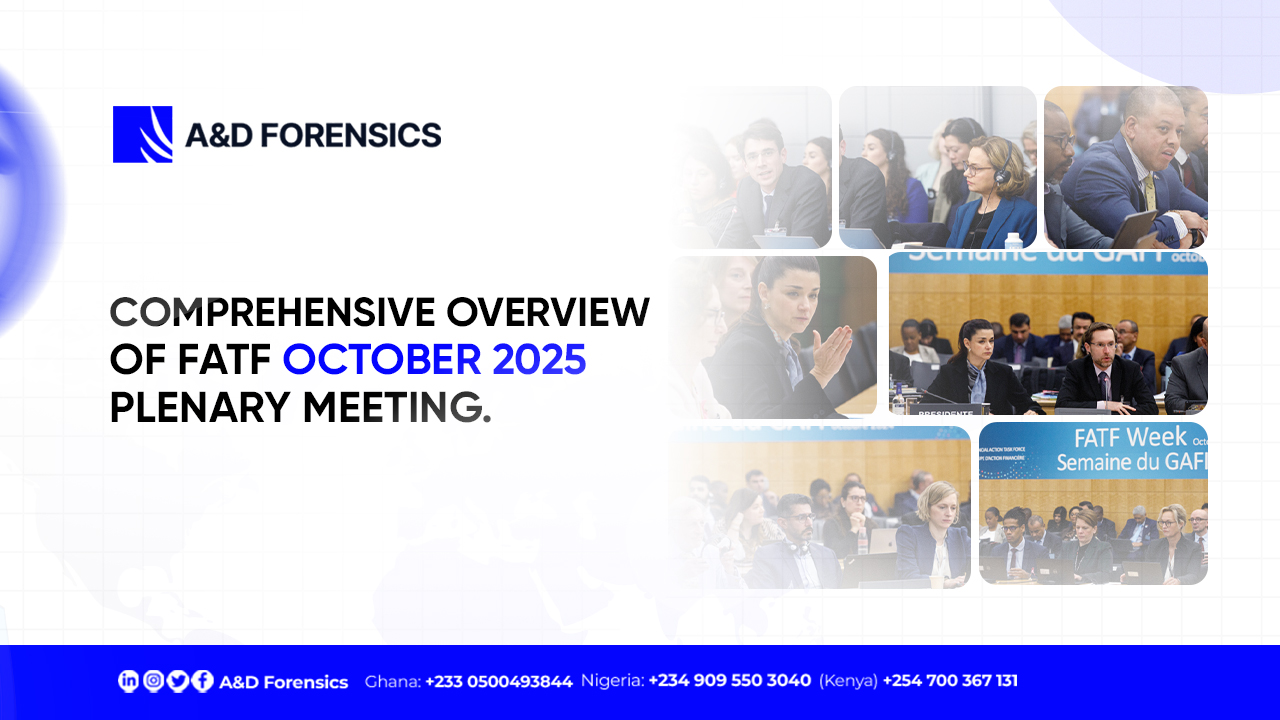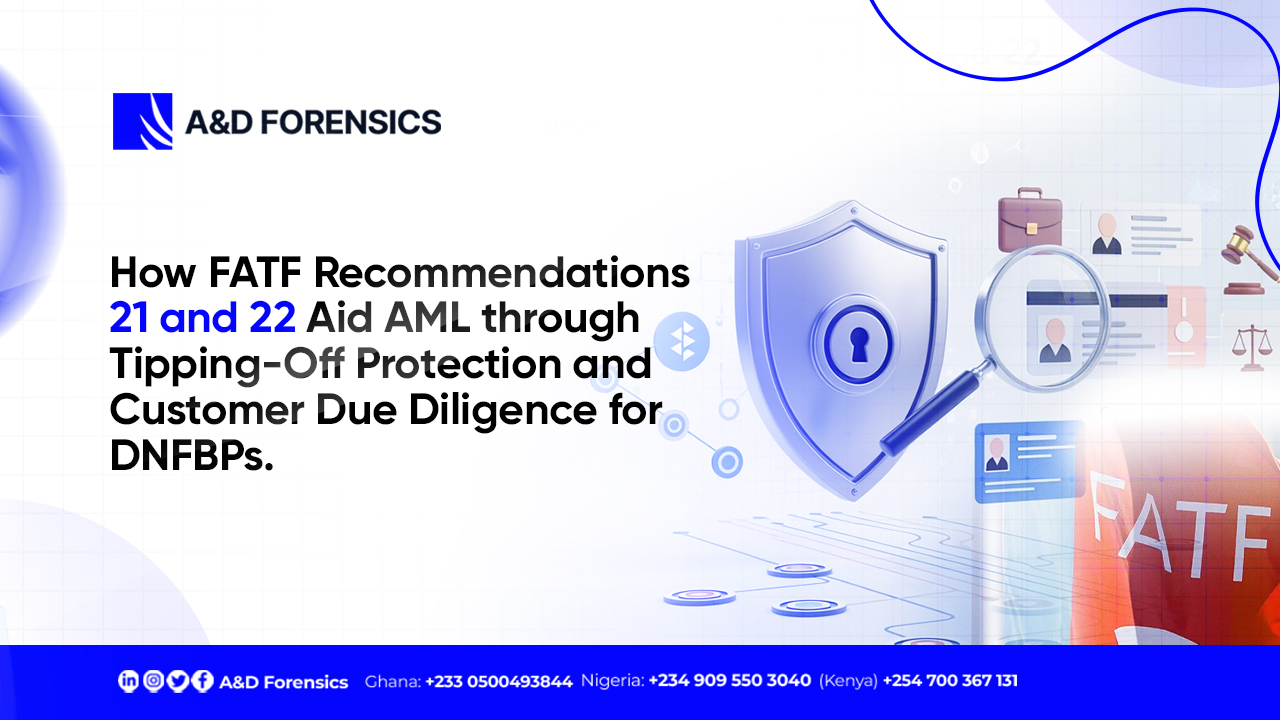FATF Recommendation 15 and FATF Recommendation 16 are at the heart of global efforts to regulate cryptocurrencies and virtual assets. As the use of digital assets grows, so do the risks of money laundering and terrorist financing. In response, the Financial Action Task Force (FATF) extended its AML/CFT standards to cover the virtual asset sector, requiring countries and Virtual Asset Service Providers (VASPs) to implement measures like customer due diligence, transaction monitoring, and licensing.
These FATF recommendations not only brought virtual assets (New Technologies) under regulatory oversight but also triggered the global implementation of the Travel Rule, a requirement for VASPs to share originator and beneficiary information during transactions. Together, FATF Recommendation 15 and FATF Recommendation 16 are shaping the future of virtual asset compliance, enhancing transparency, and strengthening the integrity of digital finance.
Understanding FAFT Recommendation 15: Expanding the AML Scope to Virtual Assets.
FATF Recommendation 15 requires countries to regulate virtual assets (VAs) and virtual asset service providers (VASPs) to combat money laundering and terrorist financing. It mandates licensing, customer due diligence, and reporting obligations. Amended in 2018 and clarified in 2019, R.15 covers all VA-related transactions. Despite this, as of early 2024, about 75% of jurisdictions were still only partially compliant. However, 2025 has shown progress in VASP licensing and Travel Rule adoption.
How FATF Recommendation 15 Aids Anti-Money Laundering (AML).
- Extends AML Obligations to Virtual Assets and VASPs: FATF Recommendation 15 ensures that virtual assets and Virtual Asset Service Providers (VASPs) are subject to the same AML rules as traditional financial institutions, eliminating regulatory blind spots in the crypto space.
- Requires Licensing and Regulatory Supervision: Countries must license or register VASPs and subject them to effective AML/CFT supervision, ensuring that only legitimate and accountable entities operate in the virtual asset market.
- Imposes Risk-Based AML Controls: VASPs must conduct risk assessments and implement controls like Customer Due Diligence (CDD), Enhanced Due Diligence (EDD), and ongoing monitoring, all aimed at identifying and mitigating money laundering risks.
- Mandates Suspicious Transaction Reportin: FATF Recommendation 15 obliges VASPs to report suspicious transactions to Financial Intelligence Units (FIUs), strengthening authorities’ ability to detect and investigate illicit financial flows.
- Promotes Global Regulatory Consistency: By setting international standards, FATF Recommendation 15 reduces regulatory arbitrage and enhances cross-border cooperation, making it harder for money launderers to exploit weaker jurisdictions.
FATF Recommendation 16: Implementing the Travel Rule.
FATF Recommendation 16, commonly known as the Travel Rule, is designed to improve transparency in wire transfers and virtual asset transactions to combat money laundering and terrorist financing. Originally, it applied to wire transfers in traditional finance, requiring financial institutions to collect and transmit accurate originator and beneficiary information, such as names, account numbers, and identifying details with each transfer.
FATF Recommendation 16, originally designed for wire transfers in traditional finance, was extended to virtual asset transfers in 2019. It introduced the Travel Rule for crypto, requiring VASPs to. In 2025, it refined the rule to clarify responsibilities and standardize data, strengthening global compliance and fraud prevention with public consultations.
Public Consultations on Recommendation 16.
FATF initiated a second public consultation on revisions to Recommendation 16 (payment transparency) and its Interpretive Note on 24 February 2025. The consultation targets updates adapting to evolving payment models and aims to increase transparency in cross-border payments. Additional FATF statements (published June 2025) refer to over 300 responses received and confirm that the consultation was indeed carried out and contributed to the revision process.
Update on the FATF Recommendation 16 from the FATF-MONEYVAL Plenary Meeting.
FATF-MONEYVAL June 2025 Plenary Meeting set the approval of changes to FATF Recommendation 16 of the FATF Standards, designed to enhance the transparency and security of cross-border payments exceeding USD/EUR 1,000. The revised standards will be officially published on 18 June 2025, with financial institutions expected to comply by 2030.

How FATF Recommendation 16 Aids Anti-Money Laundering (AML).
- Promotes Identity Transparency: VASPs must collect and share sender and receiver details, making it harder for criminals to hide behind anonymous crypto transfers.
- Strengthens Transaction Traceability: Transaction data must accompany the transfer from end to end, helping regulators trace illicit funds across platforms and borders.
- Helps Prevent Fraud and Errors: Validating user information before processing helps detect fraud and stop mistaken or suspicious transactions before they happen.
- Boosts Cross-Border Oversight: Standardized data-sharing across jurisdictions enables authorities to monitor international crypto flows and close regulatory loopholes.
- Balances Compliance with Privacy: Allows simplified ID details (like date of birth and city) instead of full addresses, supporting AML goals without sacrificing user privacy.
5 key impacts of FATF Recommendation 15 and 16 on virtual assets and the Travel Rule.
- Formal Inclusion of Virtual Assets in AML Framework: Recommendation 15 expanded AML/CFT obligations to Virtual Asset Service Providers (VASPs), making them subject to the same compliance standards as traditional financial institutions.
- Enforced the Travel Rule for Crypto Transfers: Recommendation 16 extended the Travel Rule to VASPs, requiring them to collect and share originator and beneficiary information for transactions above certain thresholds.
- Improved Transparency in Crypto Transactions: Together, these FATF recommendations reduce anonymity in virtual asset transfers, helping law enforcement track illicit flows and identify bad actors.
- Drove Global Regulatory Alignment: Countries now align their local crypto regulations with FATF standards, pushing VASPs to comply with uniform reporting and KYC requirements internationally.
- Accelerated the Development of Compliance Tools: To meet these requirements, the crypto industry has seen a rise in Travel Rule compliance solutions and blockchain analytics tools to monitor and trace transactions.
5 Implementation Challenges of FATF Recommendation 15 and FATF Recommendation 16.
- Uneven Global Adoption: Many countries are still developing or enforcing rules, creating gaps that allow criminals to exploit less regulated jurisdictions.
- Technology Limitations: VASPs often lack the tools or infrastructure to securely collect and transmit Travel Rule data, especially smaller firms.
- Privacy vs. Compliance: Sharing customer information across borders raises data protection concerns, especially under laws like the GDPR.
- DeFi and Non-Custodial Gaps: Decentralized platforms fall outside the FATF’s VASP scope, leaving a loophole for illicit transactions.
- High Compliance Costs: Implementing these requirements especially Travel Rule systems can be costly and burdensome, particularly for startups and small VASPs.
Conclusion
FATF Recommendation 15 andFATF Recommendation 16 represent a watershed moment in virtual asset regulation. By extending AML/CFT obligations to digital assets and enforcing the Travel Rule, they have reshaped how countries and VASPs approach compliance. While challenges persist including technological limitations, privacy concerns, and uneven global adoption their influence has been transformative. As jurisdictions work toward full implementation and industry solutions mature, these recommendations are laying the foundation for a safer, more transparent virtual asset ecosystem that aligns with global financial integrity standards.
Explore FATF Recommendation 1 to 14 in our previous blog:
- FATF Recommendation 1 and 2
- FATF Recommendation 3 and 4
- FATF Recommendation 5 and 6
- FATF Recommendation 7 and 8
- FATF Recommendation 9 and 10
- FAFT Recommendation 11 and 12
- FAFT Recommendation 13 and 14
Contributor: Ibrahim Anuoluwapo Azeez






